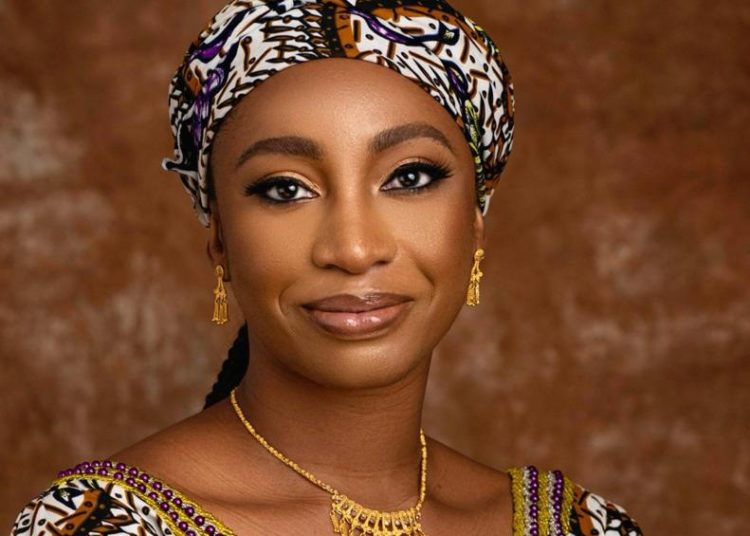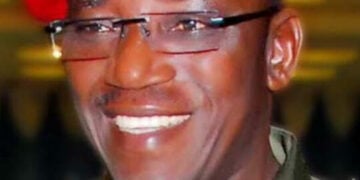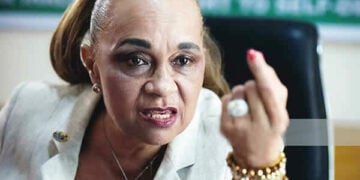The ground-breaking of the Damau Household Milk Farm was performed in January 2020. Two years after, at what stage is the project now?
I will give a brief overview of the project to give some context. The Damau Household Milk Farm project aims to develop a farm settlement that will accommodate up to 1,000 herders who will engage principally in milk farming and other farming activities.
The project area is located in the forest reserve of Damau, Kubau Local Government Area. The settlement will be laid out in three districts of about 1,800 hectres each. Each district is further laid out into eight to nine clusters of 40 farmers per cluster (each cluster is also 200hectres). Therefore, each district is expected to accommodate about 320 to 360 farms. There is also 600 hectres of irrigated land for feed production during the dry season.
Each farmer and his or her household shall be entitled to about five hectres of farmland, complete with a farmhouse, cattle shed and a calf pen. Of the five hectres of land, 0.5 hectres is allocated to housing and garden purposes, while about 4.5 hectres shall be for feed production, in addition to access to 0.6 hectres of irrigated land per household. Each farm will start with three crossbred cows for milk production and breeding, and the land at each farm has the capacity for feeding eight of such cows, including breeding stock. The farm will also have amenities such as power supply and potable water, in addition to skills acquisition centres, primary health centres, school blocks, veterinary clinics, market blocks and stalls, toilet blocks and security posts.
Over the past year and half, we have focused on the provision and construction of infrastructure for the farm with emphasis on site access and mobility; that is, the construction of approximately 130 kilometres of 10 metres wide roads, 37 culverts, two bridges which are nearing completion.
In March of this year, we embarked on the pilot phase, which is Phase1 of the project. We have started the construction of 400 out of the 1000 cattle sheds and calf pens, two skills acquisition centres, two primary health centres, two school blocks, two veterinary clinics, two market blocks/stalls, six toilet blocks and four security posts. In addition, we are developing 240 hectres out of the 600 hectres of irrigated land, 800 hectres out of 4,500 hectres at two hectres per household for Individual pasture and irrigation systems, constructing the farm perimeter fence and providing water as well as power supply and reticulation. We are in the process of procuring 1, 200 cross bred cattle out of 3,000.
Is there a possibility that the entire project will be completed in the next eight months, before the present administration leaves office?
No. As I mentioned earlier, the project will be executed in three phases, with the first phase having commenced in March of this year. The pilot phase which consists of 400 farmhouses and farm infrastructure will be completed and will become operational before the tenure of this administration runs out. We intend to complete all procurement activities and construction works by February of 2023.
However, governance is a continuum, and the completion and operation of the first phase will serve as a proof of concept, by demonstrating to all project stakeholders that the novel initiative of His Excellency, Governor Nasir El-Rufai, is feasible. It will also serve as a learning experience in the execution of the other two phases by averting avoidable mistakes and duplicate positive aspects.
What is the nature of the project? Is it a Public Private Partnership or a purely Kaduna State Government initiative?
It is both. The project is modelled as a Public-Private Partnership between the Kaduna State Government (KDSG) and private sector parties, particularly Arla Foods Ltd and other organisations such as Miyetti Allah Cattle Breeders Association, to support job creation and market driven growth for the Kaduna dairy value chain, while also promoting and creating markets for milk products from organised dairy clusters.
It is also the KDSG’s initiative which aims to facilitate and promote a shift from the current open grazing or nomadic culture or the practice of herders criss-crossing thousands of kilometres in search of pastures, to the practice of fixed farm settlements or enclosed and controlled grazing. It aims at curbing the rampant deadly clashes between herders and farmers, by gradually settling herders in closed and controlled grazing settlements. In addition, the project will provide a farm settlement that will be highly secured and therefore eliminate or significantly curb cattle rustling.
How will the farmers be selected for this project?
Considering the project’s location, the project beneficiaries would be selected from 10 contact locations – based on a selection ratio. These locations are Anchau, Ikara, Makarfi, Hunkuyi, Soba, Zaria, Sabon Gari, Lere, Kauru and Ruwan Sanyi, which is the project’s site. We have carried out a series of stakeholder sensitisations beginning from project inception, to discussing its objectives, project model, and target beneficiaries. We have also been consistent in disseminating information by airing jingles on radio and using digital platforms as well as the print media, regarding beneficiary eligibility criteria and the selection process.
We have concluded the beneficiary interview and capture exercise in October last year, using a specialised field data collection tool for transparency purposes. Applicants had been well sensitised and notified of the exercise within their respective contact locations. All applicants provided means of identification and were basically asked to respond to questions on the form, and final selections would be made based on their answers. Basically, the questions centred around willingness to relocate to the project site, willingness to join a new cooperative, willingness to rear improved breeds and to pay for veterinary services. Completeness of basic personal information like phone number, next of kin, desired age range etc.
We had received over 2,000 applications, with about 15% of them being women, while bearing in mind that only 1,000 would be selected for the project. In Kaduna state, we operate a very inclusive governance system which makes itself evident in every aspect of our operations. In line with the Framework for Responsible Inclusive Land Intensive Agriculture (FRILIA) developed by the World Bank and KDSG, which emphasises opportunities for women and the vulnerable to benefit directly from all investments that require large parcels of land, the beneficiary projections were done to allow 20% women participation. We have now concluded the selection of the project beneficiaries and have received 187 (19%) number of women participation. The list has been shared with the relevant stakeholders.
We are currently coordinating the beneficiaries and setting up the Damau Cooperative to serve as a model framework in Nigeria. It will aid the beneficiaries in establishing a blueprint for accessing and managing feed, medicines, vaccines as well as other services, including financial instruments, for its members. The organization will also ensure steady supply of milk to the project offtakers.
Arla is also building a demonstration farm on 400 hectres of land within the settlement boundary. The main objective is for the farm to serve as a comprehensive tool to teach agricultural technologies to the farmers with regard to milk production. It is a smart investment that will accelerate the adoption of modern farming techniques within and around the project location, create additional jobs and attract further investments. The farm will consist of various temperature-controlled housing units for the cows, heifers, and calves, residential accommodation for farm personnel, feed mills, feed storage facilities, irrigation systems, milking parlour and other farm complementary facilities. The farm will also have a production capacity of 400 milking cows, with each cow producing a minimum of 50 litres per day. They have so far invested $14 million into the farm and plan to invest a further $25 million in the form of a processing plant and milk collection centres as the project progresses.
What is Kaduna state’s contribution to the whole project, apart from giving land for the Damau Household Family Milk project?
Kaduna State Government has obtained a loan from the CBN, through its Commercial Agriculture Credit Scheme, for the construction of farmhouses, farm infrastructure and common facilities. In summary, KMDMC is responsible for the financing, procurement, building and development of the farm ranch and other facilities; the company will hold ownership of all project assets until debt is paid off and ownership is transferred to the farmers in a cooperative model. It will also hold the land. Farmers will sign a participation agreement with Kaduna, to agree to terms of the project.
On the other hand, Arla will manage and operate ranch common area facilities through an operational service agreement. It will provide services like the initial handling and quarantining of new cattle, irrigation management and feed production, artificial insemination and cross breeding . Arla Foods will also invest in milk collection and will sign an exclusive tripartite milk purchase agreement with the Farmer Coop and each individual participating farmer. The farmer cooperative will enter into a service agreement with the Dairy Operator to provide services around feed provision. The Farmer Coop will make deductions from the milk payment to pay these services.
DAMAU MILK FARM Facts
-The Damau Household Milk Farm project aims to develop a farm settlement that will accommodate up to 1,000 herders who will engage principally in milk farming;
-The project will be in three districts of about 1,800 hectres each, with each district laid out into eight to nine clusters of 40 farmers per cluster (each cluster is also 200hectres);
-Each district is expected to accommodate about 320 to 360 farms and there will also be 600 hectres of irrigated land for feed production during the dry season;
-Each farmer and his or her household shall be entitled to about five hectres of farmland, complete with a farmhouse, cattle shed and a calf pen;
– Each farm will start with three crossbred cows for milk production and breeding, and the land at each farm will have the capacity for feeding eight of such cows, including breeding stock;
-The farm will also have amenities such as power supply and potable water, in addition to skills acquisition centres, primary health centres, school blocks, veterinary clinics, market blocks and stalls, toilet blocks and security posts.
–The Damau Household Milk Farm aims to solve the multifaceted problems associated with nomadic pastoralism, especially cattle rustling, transhumance, farmer/herder clashes;
– The farm will create upward of 2,000 direct and indirect jobs while improving the economic state of locals within the area.





